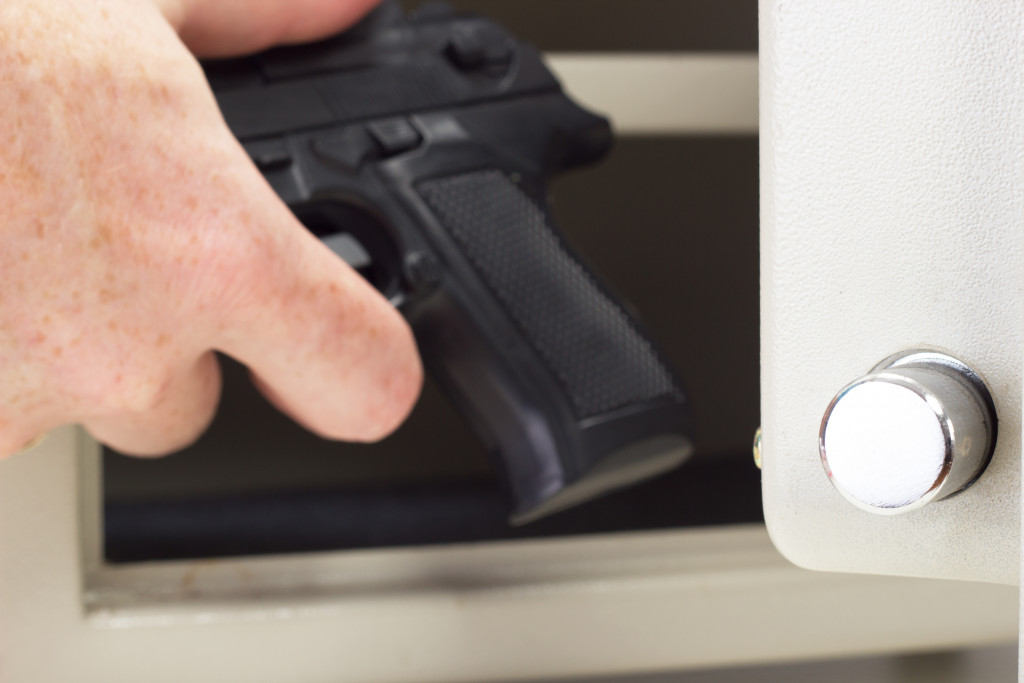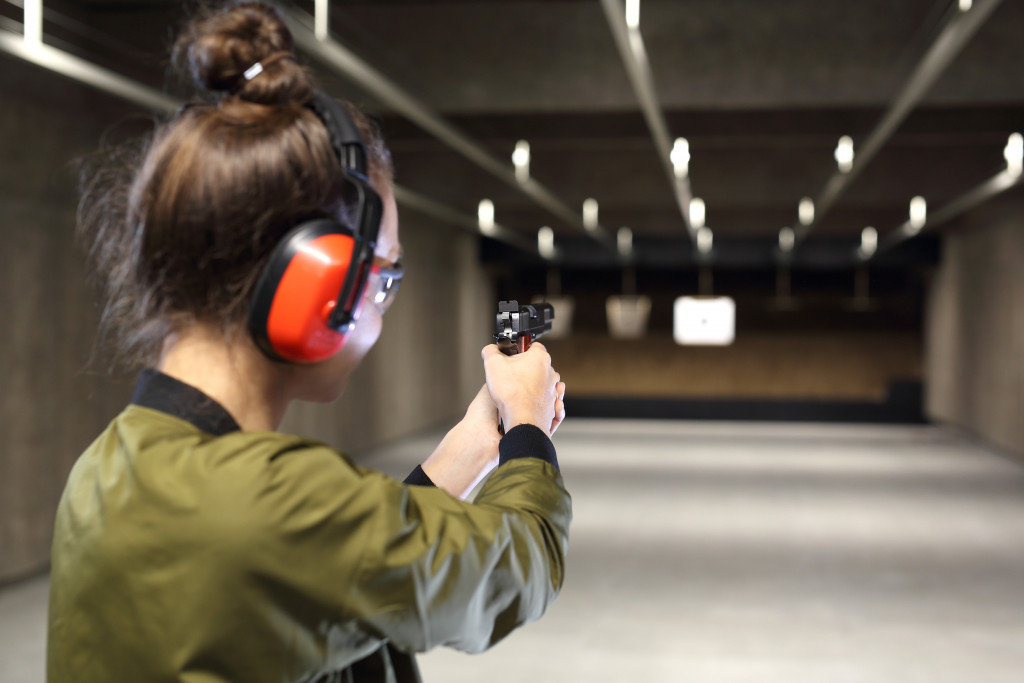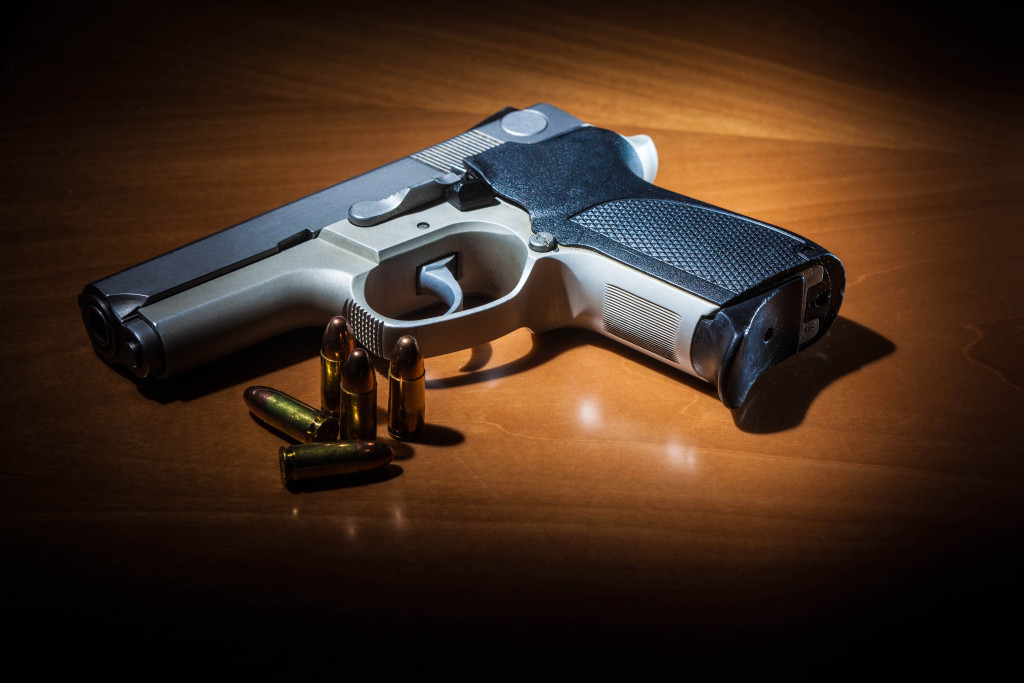- Gun ownership is a common feature of American life, with 42% of households owning at least one firearm and the US home to 393 million guns.
- Each state has its own set of rules and regulations governing gun ownership and use.
- The federal government has the power to regulate firearms, and states have different restrictions when it comes to gun ownership.
- Some general gun laws apply to every state in the country, including age requirements, background checks, concealed carry permits, and gun-free zones.
- Additionally, gun stores are required to carry liability insurance before they can sell their products.
The topic of gun control remains a hotly debated issue in the United States. The U.S. Constitution’s Second Amendment grants citizens the right to bear arms, but this right is subject to several federal and state laws. All gun owners must abide by these gun laws to avoid criminal liability.
Gun Ownership in the U.S.
Gun ownership is a common feature of American life, with an estimated 42% of households owning at least one firearm. According to the Small Arms Survey, the United States is home to 857 million guns – more than any other country globally. Gun ownership varies by state, with states such as Alaska boasting a gun ownership rate of 57% while New York has only 19%.
Gun Control Laws in the U.S.
While the Second Amendment grants Americans the right to bear arms, there is no one-size-fits-all approach to gun control laws. Each state has its own set of rules and regulations governing gun ownership and use. But some general gun laws apply to every state in the country.
Whether you are a gun owner, a first-time buyer, or someone who wishes to learn more about gun laws in the U.S., here are the essential general gun laws that every U.S. citizen should know.

The Second Amendment
The Second Amendment of the U.S. Constitution allows citizens to own guns. However, this right is not without limitations. The federal government has the power to regulate firearms, and states have different restrictions when it comes to gun ownership. Individuals with a felony conviction, a domestic violence conviction, or a mental health condition may be prohibited from owning or possessing a firearm.
Age Requirements
The age requirement for purchasing a firearm in the United States varies from state to state. Federal law requires gun sellers to ensure that the buyer is at least 18 for rifles and shotguns and 21 for handguns. However, some states require individuals to be even older to purchase a firearm.
Background Check
Federal law requires all licensed gun dealers to conduct a background check on the buyer before selling a firearm. This background check is done through the FBI’s National Instant Criminal Background Check System (NICS), which screens for criminal history, mental illness history, drug addiction, and other disqualifiers.
Concealed Carry Permits
Concealed carry permits are required in most states. These permits allow individuals to carry concealed firearms in public places legally. The requirements for obtaining a concealed carry permit vary by state. Individuals must typically complete firearms safety training and pass a background check before being issued a permit.
Gun-Free Zones
Certain areas are designated as gun-free zones where carrying a firearm is prohibited. These include schools, hospitals, government buildings, and airports. In some states, carrying a firearm in these areas can result in criminal charges.
Gun Insurance For Stores
Specific laws also apply to stores selling firearms. The law requires gun stores to carry liability insurance for potential accidents and damages caused by firearms sold in their store. This insurance helps protect gun stores from financial liability in the event of an accident or injury involving a firearm sold by the store. If you plan to start a gun store, you’ll also need affordable insurance underwriting services for gun shops to legitimize your store. This service can help you get the necessary coverage to protect your business from any financial liability from gun-related accidents, injuries, or damages. As a buyer, always check whether your local gun store has insurance, as it can determine the store’s credibility.

Owning Your First Gun
Owning a firearm is a big responsibility that should not be taken lightly. Before purchasing your first gun, ensure you know the applicable state and federal laws governing firearms ownership. Additionally, follow these tips so you can make the most informed decision when buying your first gun:
- Take a firearms safety course to learn more about gun laws, safe storage and handling practices, and how to use your firearm responsibly.
- Do your research on different types of firearms available in the market. Also, consider getting an approved gun safe for secure storage.
- Visit your local gun store or shop online to find the best price for the firearm you’re interested in.
- Check state and federal laws regarding background checks, waiting periods, and other requirements before purchasing a firearm.
- Finally, remember that owning a gun is a great responsibility – use it wisely!
Every U.S. citizen should know the general gun laws in their state and country. Knowing the rules can help ensure you remain safe and comply with all applicable laws. Gun ownership is a right, but it also comes with great responsibility – make sure you use your firearms responsibly!



